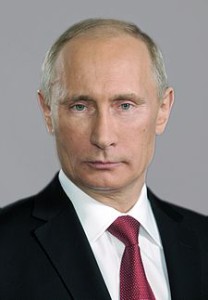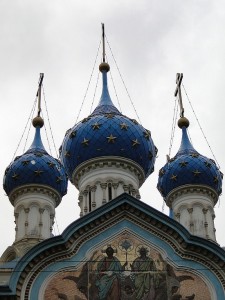In a recent speech to the Russian people, Vladimir Putin “praised Russia’s army with words from St. John’s gospel: ‘Greater love hath no man than this, that a man lay down his life for his friends.’” This is the army that has killed men, women, and children by indiscriminate attacks on Ukraine’s towns and cities.
Putin attempts what many leaders do: rally a country around religion.
According to a briefing in The Economist (March 26, 2022, “The Cult of War), Putin has revived an “obscurantist anti-Western mixture of Orthodox dogma, nationalism, conspiracy theory and security-state Stalinism.”
To cloak Putin’s desire to revive the greater Russia of the czars in the words of Jesus Christ is surely a horrible repudiation of Christ’s life and message.
The temptation to tie Christ to political causes, however, has been dangled before his followers ever since his life on earth. Indeed, Christ himself was tempted, according to Christian gospels, to worship Satan by accepting Satan’s gift of all the kingdoms of the world. He refused, as his followers been called to do ever since.
Crowds of would-be followers lined up to cheer Jesus toward the end of his ministry. They hoped he would overcome Rome’s rule of their country. Instead, Jesus rode into Jerusalem, not on a charging war steed, but on an humble donkey. A few days later, he allowed himself to be killed by the Roman state.
Throughout the two-thousand years since that death, those calling themselves by his name have struggled with the militant temptation. When they have succumbed, as in the religious wars of the 1600’s, Christianity suffered, eclipsed by more worldly options like Stalin’s communism.
When Christians accepted the more lowly call of service—raising the status of women, freeing slaves, building hospitals, and feeding the poor, Christianity has been strengthened.
In every generation, Christians are confronted with this choice—God as state or God as Jesus.


 The Russian currency has tumbled in the world money markets. A combination of circumstances contributed. Russian President Vladimir Putin’s actions in the Ukraine led to sanctions by Europe and the U.S. In addition, it’s not a happy time for oil producers like Russia, as oil prices have reached historic lows.
The Russian currency has tumbled in the world money markets. A combination of circumstances contributed. Russian President Vladimir Putin’s actions in the Ukraine led to sanctions by Europe and the U.S. In addition, it’s not a happy time for oil producers like Russia, as oil prices have reached historic lows. The religious leaders of the Russian Orthodox church appeared outraged at the women’s actions and called their performance in the church part of an assault “by enemy forces.” Finally, after accusing the young women and their supporters of sacrilegious acts, they called on the court to show mercy.
The religious leaders of the Russian Orthodox church appeared outraged at the women’s actions and called their performance in the church part of an assault “by enemy forces.” Finally, after accusing the young women and their supporters of sacrilegious acts, they called on the court to show mercy.